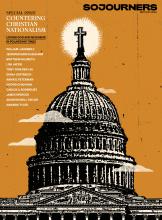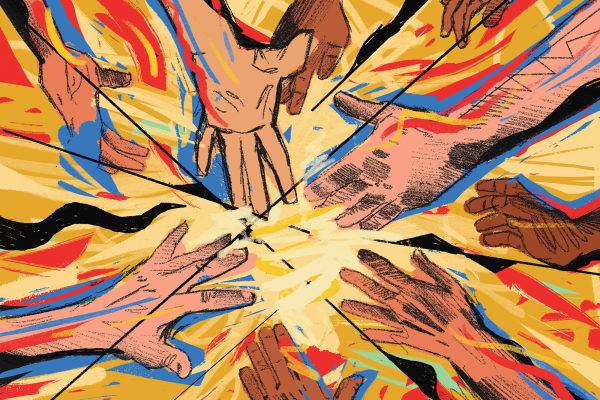THROUGHOUT THE HISTORY of North American Christianity, the church has vacillated in its view of the intersection of evangelism and social justice. For a significant portion of that history, the church has been a moral voice on behalf of the “least of these” and advocated for justice in the public realm. Many Catholics and other Christians have not wavered in this work.
Since early in the 20th century, however, U.S. evangelical Christians in particular have focused primarily on personal evangelism and separated it from the justice witness of the church in public life. One of the negative consequences of the divorce of evangelism from justice has been the inability of evangelicals to engage politics in a biblical manner. Because evangelicals have seen social justice as a “secular” activity, our understanding of how justice works in the public square has been shaped more by the secular political imagination than by a biblical political imagination.
In the absence of a political imagination rooted in Jesus’ gospel of sacrificial love and the prophetic tradition, dysfunctional expressions such as Christian nationalism, conflating faith with a specific party, and extreme polarization have emerged as the de facto position of much of the church in the political realm. The public sphere is captive to divisive and contentious rhetoric and characterized by a quest for power, and the desire to hold and wield that power over and against one’s political opponent. The goal of many Christians in U.S. politics has deteriorated into aquiring power rather than serving the common good.
Much of U.S. evangelicalism has seemingly fallen into this trap — in contrast to the historical call of the church to be an advocate for the voiceless and powerless. How would engagement in the public realm change if the political imagination of evangelicals were to shift from this grab for power toward the Jesus’ teaching to be servants of all? How can scripture and biblical examples offer insight in this fraught political season?
A return to the biblical text can help us better understand the foundations of the church and, therefore, the full role of the church in the public arena. Our calling as the church is not only to save individual lives from a “wrecked vessel” but also to honor the imago dei in every individual and offer hope by caring for the very least of these — by being salt and light in the world.
Read the Full Article

